Filter by
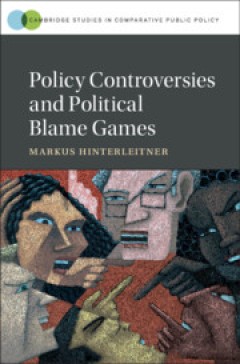
Policy controversies and political blame games
In modern, policy-heavy democracies, blame games about policy controversies are commonplace. Despite their ubiquity, blame games are notoriously difficult to study. This book elevates them to the place they deserve in the study of politics and public policy. Blame games are microcosms of conflictual politics that yield unique insights into democracies under pressure. Based on an original framew…
- Edition
- -
- ISBN/ISSN
- 9781108860116
- Collation
- xiv, 264 p. ; ill
- Series Title
- -
- Call Number
- 306.2091821 HIN p

Lifestyle politics and radical activism
This book is available as open access through the Bloomsbury Open Access programme and is available on www.bloomsburycollections.com. Attempts by people to enact their political beliefs in their daily lives have become commonplace in contemporary US culture, in spheres ranging from shopping habits to romantic attachments. This groundbreaking book examines how collective social movements have cu…
- Edition
- 15
- ISBN/ISSN
- 9781441157430
- Collation
- ix, 208 p.
- Series Title
- -
- Call Number
- 303.484 POR l

The right-wing critique of Europe : nationalist, souverainist and right-wing …
The Right-Wing Critique of Europe analyses the opposition to the European Union from a variety of right-wing organisations in Western, Central and Eastern Europe. In recent years, opposition to the processes of globalisation and the programme of closer European integration, understood as a threat to the sovereignty of individual member states, has led to an intensification of Eurosceptic sentim…
- Edition
- 2
- ISBN/ISSN
- 9781003226123
- Collation
- x, 290 p. : ill.
- Series Title
- -
- Call Number
- 341.2422 SON t
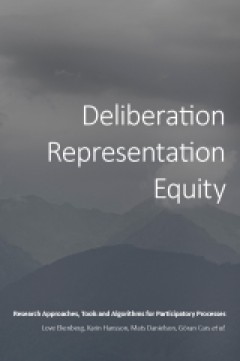
Deliberation, representation, equity: research approaches, tools and algorith…
What can we learn about the development of public interaction in e-democracy from a drama delivered by mobile headphones to an audience standing around a shopping center in a Stockholm suburb? In democratic societies there is widespread acknowledgment of the need to incorporate citizens’ input in decision-making processes in more or less structured ways. But participatory decision making is …
- Edition
- -
- ISBN/ISSN
- 9781783743056
- Collation
- 376 p. : ill. : ind. ; 24 cm
- Series Title
- -
- Call Number
- 323.042 DEL d

The DARPA model for transformative technologies: perspectives on the U.S. def…
The U.S. Defense Advanced Research Projects Agency (DARPA) has played a remarkable role in the creation new transformative technologies, revolutionizing defense with drones and precision-guided munitions, and transforming civilian life with portable GPS receivers, voice-recognition software, self-driving cars, unmanned aerial vehicles, and, most famously, the ARPANET and its successor, the Inte…
- Edition
- -
- ISBN/ISSN
- 9781783747931
- Collation
- xix, 485 p. : ind. ; 24 cm
- Series Title
- -
- Call Number
- 338.064 DAR d
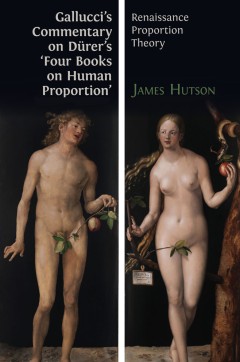
Gallucci's commentary on dürer's 'four books on human proportion': renaissan…
In 1591, Giovanni Paolo Gallucci published his Della simmetria dei corpi humani, an Italian translation of Albrecht Dürer’s Four Books on Human Proportion. While Dürer’s treatise had been translated earlier in the sixteenth-century into French and Latin, it was Gallucci’s Italian translation that endured in popularity as the most cited version of the text in later Baroque treatises, cov…
- Edition
- -
- ISBN/ISSN
- 9781783748617
- Collation
- xi. ; 205 p.
- Series Title
- -
- Call Number
- 704.942 JAM g

Coleridge's laws : a study of Coleridge in Malta
Samuel Taylor Coleridge is best known as a great poet and literary theorist, but for one, quite short, period of his life he held real political power—acting as Public Secretary to the British Civil Commissioner in Malta in 1805. This was a formative experience for Coleridge which he later identified as being one of the most instructive in his entire life. In this book, Barry Hough and Howard…
- Edition
- -
- ISBN/ISSN
- 9781906924140
- Collation
- xvi. :406 p.
- Series Title
- -
- Call Number
- 340.094585.
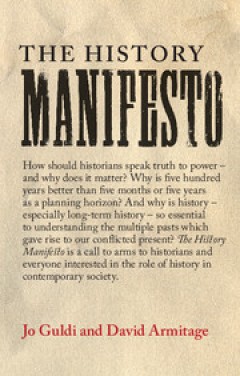
The history manifesto
How should historians speak truth to power – and why does it matter? Why is five hundred years better than five months or five years as a planning horizon? And why is history – especially long-term history – so essential to understanding the multiple pasts which gave rise to our conflicted present? The History Manifesto is a call to arms to historians and everyone interested in the role o…
- Edition
- -
- ISBN/ISSN
- 9781139923880
- Collation
- ix, 165 p. : ill
- Series Title
- -
- Call Number
- 901 GUL t
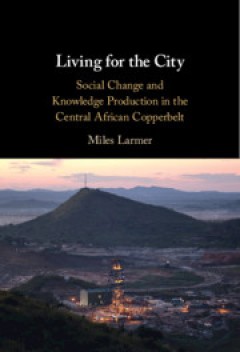
Living for the city : social change and knowledge production in the Central A…
Living for the City is a social history of the Central African Copperbelt, considered as a single region encompassing the neighbouring mining regions of Zambia and the Democratic Republic of Congo. The Haut Katanga and Zambian Copperbelt mine towns have been understood as the vanguard of urban 'modernity' in Africa. Observers found in these towns new African communities that were experiencing w…
- Edition
- -
- ISBN/ISSN
- 9781108973120
- Collation
- xiii, 380 p. : ill
- Series Title
- -
- Call Number
- 967 LAR l
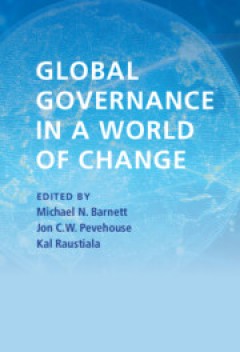
Global governance in a world of change
Global governance has come under increasing pressure since the end of the Cold War. In some issue areas, these pressures have led to significant changes in the architecture of governance institutions. In others, institutions have resisted pressures for change. This volume explores what accounts for this divergence in architecture by identifying three modes of governance: hierarchies, networks, …
- Edition
- -
- ISBN/ISSN
- 9781108915199
- Collation
- xii, 381 p. : ill.
- Series Title
- -
- Call Number
- 341.2 BAR g
 Computer Science, Information & General Works
Computer Science, Information & General Works  Philosophy & Psychology
Philosophy & Psychology  Religion
Religion  Social Sciences
Social Sciences  Language
Language  Pure Science
Pure Science  Applied Sciences
Applied Sciences  Art & Recreation
Art & Recreation  Literature
Literature  History & Geography
History & Geography